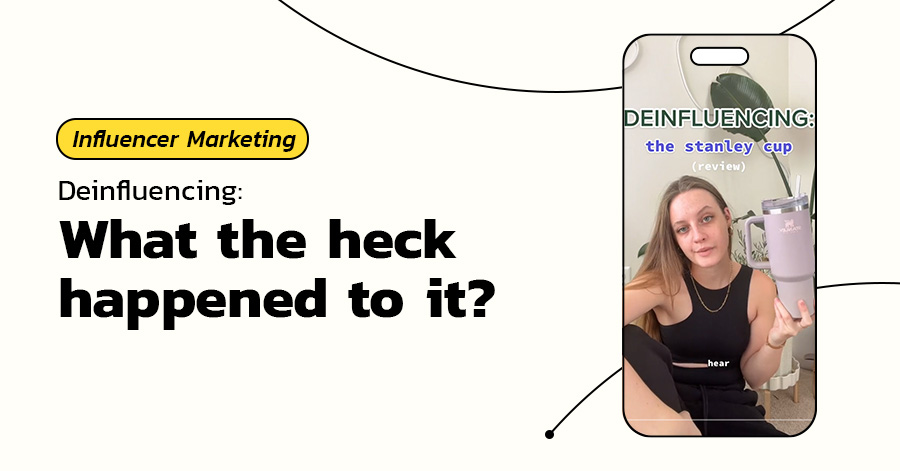Deinfluencing: what the heck happened to it?

🌈 Abstract
The article discusses the "deinfluencer" movement that gained prominence on social media in early 2023, where influencers pushed back on constant product promotion and called out overconsumption. It examines how this trend has evolved over the past year, its impact on brands, and whether it still matters.
🙋 Q&A
[01] The Deinfluencer Movement
1. What is the deinfluencer movement?
- The deinfluencer movement refers to influencers sharing truthful opinions of brands, pushing back on constant product promotion, and calling out overconsumption on social media.
- It started as a way to call out brands that went against their audience's values, but it has also extended to celebrities, influencers, and cultural events like the Met Gala.
2. How has the deinfluencer movement evolved over the past year?
- The deinfluencer movement peaked in February 2023 with a 93% sudden growth, but it has seen a steady decline since then.
- However, it still occasionally resurfaces, such as in October 2023 with an 11% rise in views.
- The article questions whether the deinfluencer movement will come back and if it even matters anymore.
[02] Impact on Brands
1. How have brands been affected by the deinfluencer movement?
- Brands like Stanley, Dyson, and Skims have all been impacted by the deinfluencer movement at some point.
- For example, the Stanley Cup was called out as unsustainable and "not worth the money," while the Dyson Airwrap was criticized as a fad that "doesn't work for their hair."
- Kim Kardashian's shapewear brand Skims also faced backlash over allegedly deceptive advertising and greenwashing.
2. How have these brands responded to the deinfluencer movement?
- Despite the immediate impact, the article suggests that there is not much noticeable long-term impact on these brands.
- Instead of giving in to deinfluencing, brands have continued to lean into the benefits of influencer marketing, diversifying their products, and focusing on social-first positioning to reach their target audience.
- Skims, for example, has bounced back from controversies by partnering with relevant cultural moments and influencers.
[03] Deinfluencing Beyond Brands
1. How has the deinfluencer movement affected celebrities and cultural events?
- The deinfluencer movement has also impacted celebrities and cultural events, such as the Met Gala.
- During the 2024 Met Gala, thousands of TikTok users participated in the #Blockout2024 campaign, which aimed to block celebrities who had not spoken out about the humanitarian crisis in Palestine.
- One of the biggest scandals involved influencer Haley Kalil, who faced severe backlash for a "tone-deaf" video.
2. How did Haley Kalil respond to the backlash, and what does this suggest about the long-term impact of deinfluencing?
- Haley Kalil lost over 100,000 followers due to the backlash, but less than two months later, she had gained them all back.
- This suggests that while deinfluencing can have an immediate impact, the long-term effects may not be as significant, and people may quickly forget or forgive.
[04] Navigating the Deinfluencer Movement
1. What advice does the article provide for brands to navigate the deinfluencer movement?
- The article suggests that brands should only work with influencers that align with their goals and values and genuinely use their products, as people can spot fakeness.
- If a brand is deinfluenced, it should genuinely apologize, see it as an opportunity for improvement, and not panic or rush their response.
- The article also emphasizes that brands should not let deinfluencing stop their strategies, as consumers' opinions can change quickly, and brands can bounce back with the right approach.
2. How can brands minimize the risks of deinfluencing?
- The article mentions that Brainlabs' proprietary tech tools and creative expertise can guide brands through any deinfluencing movement, help them build high-performance influencer campaigns, and recover if the worst happens.
- The article encourages brands to trust their instincts and not be afraid to be bold, as data can help qualify their decisions.